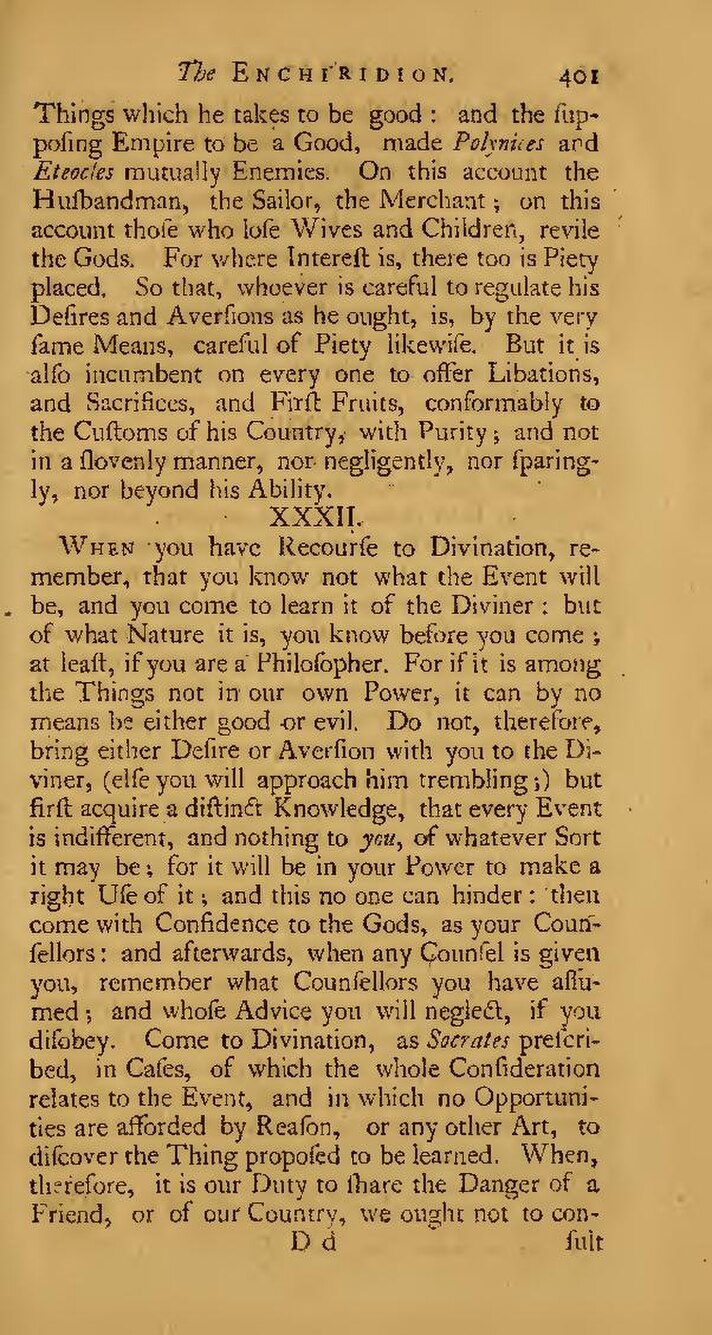Things which he takes to be good and the supposing Empire to be a Good, made Polynices and Eteocles mutually Enemies. On this account the Husbandman, the Sailor, the Merchant; on this account those who lose Wives and Children, revile the Gods. For where Interest is, there too is Piety placed. So that, whoever is careful to regulate his Desires and Aversions as he ought, is, by the very same Means, careful of Piety likewise. But it is also incumbent on every one to offer Libations, and Sacrifices, and First Fruits, conformably to the Customs of his Country, with Purity, and not in a slovenly manner, nor negligently, nor sparingly, nor beyond his Ability.
XXXII.
When you have Recourse to Divination, remember, that you know not what the Event will be, and you come to learn it of the Diviner: but of what Nature it is, you know before you come; at least, if you are a Philosopher. For if it is among the Things not in our own Power, it can by no means be either good or evil. Do not, therefore, bring either Desire or Aversion with you to the Diviner, (else you will approach him trembling;) but first acquire a distinct Knowledge, that every Event is indifferent, and nothing to you, of whatever Sort it may be; for it will be in your Power to make a right Use of it; and this no one can hinder: then come with Confidence to the Gods, as your Counsellors: and afterwards, when any Counsel is given you, remember what Counsellors you have assumed; and whose Advice you will neglect, if you disobey. Come to Divination, as Socrates prescribed, in Cases, of which the whole Consideration relates to the Event, and in which no Opportunities are afforded by Reason, or any other Art, to discover the Thing proposed to be learned. When, therefore, it is our Duty to share the Danger of a Friend, or of our Country, we ought not to con-
